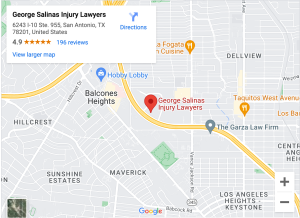April 16, 2024 | Texas Law
Vehicle and Driver Requirements For Uber and Lyft in Texas
The rise in rideshare services has led to an exponential increase in rideshare drivers and accidents. Uber and Lyft have vehicle and driver requirements in place to avoid liability arising from these incidents and to comply with government regulations. When these driver and vehicle requirements […]
April 15, 2024 | Personal Injury
Symptoms of a Broken Tailbone
In an accident, you may experience trauma to certain parts of the body, including the head, neck, and back. However, one of the areas of the body that can suffer injury that’s less spoken about is the tailbone. If you sustain an injury to your […]
April 15, 2024 | Medical Malpractice
What Is the Difference Between Express and Implied Consent?
Consent is a critical issue in medical malpractice law, and medical treatment in general. Performing medical treatment on a patient without their informed consent can get a doctor into a lot of trouble. Informed Consent Consent is useless unless it is informed consent. The patient […]
April 5, 2024 | Car Accidents
What Does a Car Accident Lawyer Do?
A car accident lawyer helps victims of car accidents get compensated for their injuries and losses caused by another driver. Car accidents are scary, stressful, and expensive. A car accident lawyer, also called a personal injury lawyer, helps victims navigate the process and file a […]
March 11, 2024 | Car Accidents
How Common Are Car Accidents Due To Eating While Driving?
You might not think munching on a snack or indulging in a hamburger while driving around poses much of a serious safety concern. But you might be surprised to learn just how often eating while driving leads to serious accidents, injuries, and even death. With […]
January 26, 2024 | Personal Injury
What Is the Difference Between Negligence and Negligence Per Se?
When it comes to bringing a personal injury claim, it is crucial to understand the difference between negligence and negligence per se. These terms may sound similar, but they represent distinct legal theories for bringing a personal injury claim. In this blog post, we’ll explore […]
January 26, 2024 | Texas Law
Is It Possible To Get Out of Jury Duty in San Antonio, TX?
The constitutional right to a trial by jury is a powerful part of our justice system. But for it to work, we need people to fill those jury seats. These are the same people who also have the right to this fair trial process. Being […]
January 18, 2024 | Car Accidents
What Are the Dangers of Running a Red Light in San Antonio, TX?
When you’re approaching a traffic light and see it change from green to yellow to red, you have a choice to make. You could slow down and stop, or you could speed up and continue through the red light. Though you may scoff at the […]
December 22, 2023 | Car Accidents
Can You Sue for a Car Accident in San Antonio if You Are Not Hurt?
If you’ve been in a car accident in San Antonio, you can pursue a negligence claim even if you do not have a physical injury. One of the elements of a negligence claim is damages, which requires the plaintiff to show that they experienced some […]
December 15, 2023 | Personal Injury
Step-by-Step Guide for Filing a San Antonio Personal Injury Claim
Filing a personal injury claim is a significant step in seeking compensation for the harm you’ve suffered due to another’s intentional actions or negligence. Such claims might arise from motor vehicle accidents, medical malpractice cases, or slip and fall incidents at poorly maintained premises. Essentially, […]

